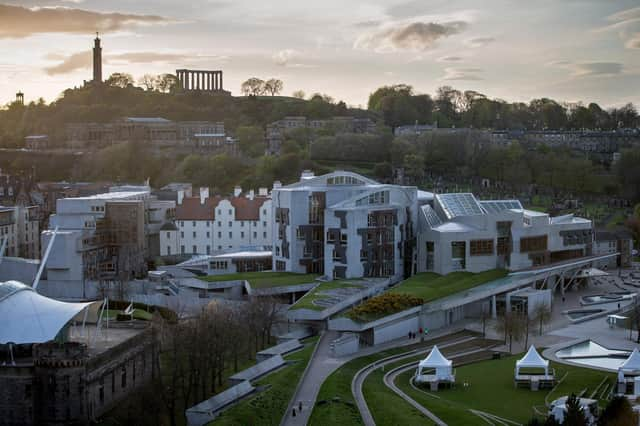Scotland's Gender Recognition Reform Bill: Whether you believe in gender identity or not, trans people have a right to equality – Emma Hutton


Have you ever looked into your family history? Browsed the archives of births, marriages and deaths, trying to decipher cursive writing from the past to find out more about your forebears? I found it fascinating and poignant, when building my own family tree, to see human lives, in all their glorious complexity, reduced to a few lines of ink on paper.
These documents are the foundational records of who we are and of the key moments in our lives. Most of us don’t have to worry about whether they reflect our identity – they just do. Most of us can apply for jobs where we need to provide our birth certificate, or get married, without having to worry about our birth certificate not matching who we are and how we live.
Advertisement
Hide AdAdvertisement
Hide AdFor trans people, it’s more complicated. Currently, to have their gender identity recognised in law and to get a birth certificate that reflects this, they must go through a lengthy, medicalised process that culminates in having to convince a panel of strangers that they are who they are.
For all the heated debate around it, the purpose of the Gender Recognition Reform Bill is to change this process, making it simpler and easier for someone to gain legal recognition of their gender. This will remain a statutory process, with several safeguards built in to prevent abuse by people acting in bad faith.
Trans people will still have to provide evidence of living in their gender for a defined period. They will be required to sign a statutory declaration and it will be a criminal offence to make a false declaration. Safeguards against predatory men accessing women’s spaces will continue to exist as they do right now.
Trans people have been able to change the sex recorded on their birth certificate to match their gender since 2004. This new Bill will make it more straightforward to do so. It will bring Scotland more into line with international human rights standards. It recognises that trans people’s rights to privacy and dignity are compromised by current processes, and that this has knock-on negative consequences for many more of their rights.
Trans people exist. Some people don’t want them to. Some people believe that there is no such thing as gender identity. But trans people have the right to live in the world, on equal terms, whether other people believe that or not.
I hope this will join equal marriage, repealing section 28, and giving children equal protection from assault, as an example of progressive rights-based law making by the Scottish Parliament. For that to happen, MSPs must today do the right thing and pass the Gender Recognition Reform Bill.
Emma Hutton is the chief executive of JustRight Scotland, a human rights legal charity based in Glasgow